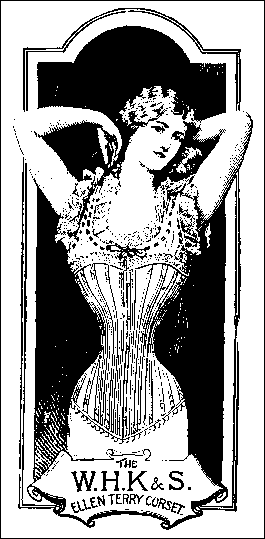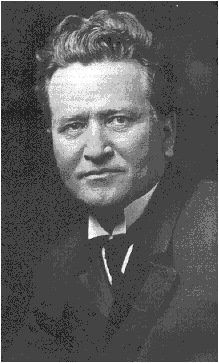Of Celibacy
Elizabeth Abbott
(Scribner)
 Elizabeth Abbott admits that she started her celibacy researchas a joke. Her friends called it "The Dry Season," and her working title was "Celebrating the Unnatural."
Elizabeth Abbott admits that she started her celibacy researchas a joke. Her friends called it "The Dry Season," and her working title was "Celebrating the Unnatural."
But after six years of research, she realized it was "a key element of human existence." Religions promoted it. Disease required it. Ancient poetry celebrated it. The commitment to work, or to the divine, or a mere abhorrence of the sexual act made it far more than a joke. "Celibacy announces itself among the graying population of self-proclaimed reborn virgins," she says. "It peeps out through the gaunt boniness of anorexic women dedicated to mastering their bodies, and in the chaste handshakes of gay men who have forsworn the deadly risks of AIDS-haunted sex."
There are thirteen chapters in A History of Celibacy, running from the Greeks, Paganism and Early Christianity through "The New Celibacy" --- with a series of subheads which tell us that the author is not handing out a dry treatise on sex, or lack of it. Some of these, indeed, read like mots on passing Tee-shirts: "Celibacy One, Lust Zero," "Semen as Patriotic Elixir," "Vatican Declares Celibacy a Brilliant Jewel," and this on Joan of Arc: "Cross-Dressing for Military Success."
It's a merry romp, chock full of many little-known facts, such as,
- Franz Kafka was the rare male anorexic, "he fantasized about gluttonous binges, larded his writing with over five hundred food-related passages, and savored the sight of other people eating;"
- Tolstoi's Kreutzer Sonata is a bitter diatribe against "marriage, lust, romantic love, and sexuality," but shortly after publication, Tolstoi "violated his vow of chastity by forcing himself on his wife;"
- Impotence in ancient Rome was caused by lead in the aqueduct system, and several poets, including and Petronius and Ovid, spoke of their declining sexual prowess with some irony, the latter writing,
Yet when I held her I was limp as yesterday's lettuce
a useless burden on an idle bed; - Hinduism, Buddhism, and Jainism "extol celibacy as one of the highest expressions of earthly existence, a crucial element in the lifelong endeavor to extinguish human passions and the longing for possessions." These religions, like Christianity, viewed women in a "negative and suspicious" way:
Women are depicted as seductive temptresses, voraciously erotic and morally weak. Their lustful nature makes celibacy an even greater challenge for men, who also have to overcome their own wayward impulses.
- In one subchapter, Abbott describes the peculiar 19th Century freedom for women to "indulge and express their intense affection for their women friends." The very concept of lesbianism has tainted the freedom of women to participate in what were termed "Boston marriages...
committed and usually chaste romantic relationships between women." She points out that these were socially acceptable, because of "their society's innocence or ignorance about female eroticism;" - Eugenics --- "Coerced Celibacy" --- was practiced with a vengeance in the Third Reich, and almost 400,000 people were sterilized, many by castration. But America was almost as enthusiastic:
By 1929, twenty-four American states, notably California and Virginia, has enacted sterilization laws to prevent future genetic defects. By 1958, 60,926 people had been neutered, with police hunting down escapees and forcing them back to undergo the procedure;
- In Thailand, over a hundred women have drugged their unfaithful husbands and "hacked off their penises." Abbott says that "authorities consider the problem so serious they have formed a Penis Patrol. This patrol is summoned whenever another victim awakes to discover his genital region bloody and minus its most crucial member." The women are subject to ten years imprisonment, but, she concludes,
the cutting edge of this story is that they are prepared to serve their time as long as they make their point by nipping their husbands' infidelities in the bud.
- Eugenics --- "Coerced Celibacy" --- was practiced with a vengeance in the Third Reich, and almost 400,000 people were sterilized, many by castration. But America was almost as enthusiastic:
As this last proves, this is no solemn history of a fascinating and often controversial subject. She can be genuinely amused by its excesses and silliness. However, there are times when Abbott misreads her sources.
In her chapter on medieval "courtly love" --- which she defines as "an exalted state between a man and a superior women he both respects and adores with quasi-religious fervor" --- she ignores the literature of the time. It was possible for both man and woman to be boringly married, and yet --- with another lover --- to be a "courtly lover." And in her chapter on Leonardo da Vinci, she claims that because of an earlier scandal, he --- like Lewis Carroll and John Ruskin --- was actively celibate. But people (especially those who have gone through the shock of such a scandal) turn secretive, are not about to reveal their passions, write about their night life --- even for subsequent generations.
In all, Abbott has written a fascinating book, which includes the fascinating bit of information that she herself has become celibate:
After vicariously experiencing --- celebrating is a better word -- the sense of liberation so many other women have derived from voluntary celibacy, I embraced it as a conscious choice.
And Other Stories
Shirley Jackson
(Modern Library)
 They called her a master of "realism," but it is a particular and peculiar kind of American realism, one that might better be described as the Depressive School of Realistic Writing --- those drab little folk like Arthur Miller, Eugene O'Neill, and the New Yorker short story scribes of fifty years ago. Despite our country's prosperity and strength, all those East Coast neo-intellectuals needed to be sure that they were still on top, assured that underneath the American Dream was an integral bitterness and cruelty.
They called her a master of "realism," but it is a particular and peculiar kind of American realism, one that might better be described as the Depressive School of Realistic Writing --- those drab little folk like Arthur Miller, Eugene O'Neill, and the New Yorker short story scribes of fifty years ago. Despite our country's prosperity and strength, all those East Coast neo-intellectuals needed to be sure that they were still on top, assured that underneath the American Dream was an integral bitterness and cruelty.It's a greedy, bleak world out there. If you went to New York City from New Hampshire ("Pillar of Salt") the speed and fury of the city would create a concurrent fury in your brain and foment a breakdown. "Elizabeth" tells of a sordid little literary agency in the city in which the owner and Elizabeth are having a sordid little affair plus screwing the hopeful writers who send in manuscripts. But the enemy is not only The City. In the most famous tale of them all --- "The Lottery" --- it's the small town, with its small town values and traditions turned upside-down.
 The story is as artfully crafted as any Kafka tale. The power lies in the details: the village of 300, the very tradition of the lottery --- where one of the villagers is methodically assassinated each year --- and the characters, painted with a fine and swift stroke. The lottery itself is run by Mr. Summers, who was "a round-faced, jovial man and he ran the coal business, and people were sorry for him, because he had no children and his wife was a scold." There's a particular focus on the black box in which the lottery slips are placed, like the tattooing machine of Kafka's "In the Penal Colony." The box, like the machine, is of a hoary tradition, but it's getting old:
The story is as artfully crafted as any Kafka tale. The power lies in the details: the village of 300, the very tradition of the lottery --- where one of the villagers is methodically assassinated each year --- and the characters, painted with a fine and swift stroke. The lottery itself is run by Mr. Summers, who was "a round-faced, jovial man and he ran the coal business, and people were sorry for him, because he had no children and his wife was a scold." There's a particular focus on the black box in which the lottery slips are placed, like the tattooing machine of Kafka's "In the Penal Colony." The box, like the machine, is of a hoary tradition, but it's getting old:
The black box grew shabbier each year, by now it was no longer completely black but splintered badly along one side to show the original wood color, and in some places faded or stained.
The lottery rules are carefully explicated: ("'Daughters draw with their husband's families,'" Mr. Summers said gently.") The pacing is wonderful --- the crowd (and the reader) being pulled into the moment in which one of the villagers finally draws the slip with the black spot, and she --- Tessie Hutchinson --- cries out, "It wasn't fair." They start picking up the stones, "The children had stones already, and someone gave little Davy Hutchinson a few pebbles..."
 It was drab times in Cold War/Eisenhower American and in American literature. Writing --- at least, the artistic "literary" writing of the time --- was not only anti-romantic, it was actively dark, a countervailing force to the ridiculous fake joy that poured out of radio and television of the day. Death of a Salesman, The Naked and the Dead, From Here to Eternity, the short stories of John O'Hara, J. D. Salinger, Katherine Anne Porter, Shirley Jackson.
It was drab times in Cold War/Eisenhower American and in American literature. Writing --- at least, the artistic "literary" writing of the time --- was not only anti-romantic, it was actively dark, a countervailing force to the ridiculous fake joy that poured out of radio and television of the day. Death of a Salesman, The Naked and the Dead, From Here to Eternity, the short stories of John O'Hara, J. D. Salinger, Katherine Anne Porter, Shirley Jackson.
Twenty-five of Jackson's stories are collected here. Her bias is apparent, even when she was supposed to be comic. For example, when she wrote about her own family, the title was not "Cheaper by the Dozen" or "Swiss Family Robinson" --- but "Life Among the Savages."

Bob La Follette
The Righteous
Reformer
Nancy C. Unger
(University of North Carolina)
 He could be vicious with his enemies. And he never forgot a slight. Sen. Frank B. Kellogg, of Minnesota, a hunch-back, tried to get him ousted from the Senate during WWI because of his anti-war sentiments. La Follette waited, then, five years later, in St Paul, he spoke:
He could be vicious with his enemies. And he never forgot a slight. Sen. Frank B. Kellogg, of Minnesota, a hunch-back, tried to get him ousted from the Senate during WWI because of his anti-war sentiments. La Follette waited, then, five years later, in St Paul, he spoke:God Almighty through nature writes men's characters on their faces and in their forms. Your Senator [Kellogg] has bowed obsequiously to wealth and to corporations' orders and to his masters until God Almighty has given him a hump on his back ---- crouching, cringing, unAmerican, unmanly.
La Follette was one of a few startlingly original people to arrive on the American political scene.He was born in Primrose, Wisconsin. He served three terms in the U. S. House, was elected governor of Wisconsin in 1896, and spent nineteen years in the U. S. Senate. His major battles were over the right for women to vote, the direct election of U. S. Senators, direct primaries, initiatives, referendums, and ecological preservation of federally owned land. He was in favor of all these, and most had been enacted within ten years of his death.
He won the love and respect of the voters by his constant battles on behalf of the common people against large corporations. He was also a bit of a screwball. He was 5' 5" and wore his hair in a pompadour to hide it. During a filibuster in the Senate, he claimed that his enemies were trying to poison him. He had the U. S. Postal Service watch his mail, convinced that his letters were being opened and read by his enemies. He would fall ill at the drop of a hat, and --- according to Professor Unger --- probably suffered from what we now call "bipolar disorder." His physical sicknesses (nerves, "stomach problems," hives, fainting spells) were often timed to make it possible for him to postpone meetings with people he didn't care for --- Teddy Roosevelt, President Wilson, William Howard Taft.
His speechifying was legion: it was a time when declamation was a high art, and he could go on and on (and on) for hours without taking a break. His ability at oratory was such that he could hold audiences spellbound while he was reading, for example, the voting records of his fellow Senators. His speaking style is best described as 19th Century Florid. For example, when he was asking appropriations to feed the starving Germans after WWI, he said,
Envision our good old Uncle Sam dispensing charity to the starving peoples of Europe; their hands stretched out to him shrunken with hunger and starvation, little children about his knees, pale, emaciated, their hands so thin you can see through them...Think of charity represented in the person of this figure that stands for American benevolence and philanthropy turning away a starving child because it is of German heritage.
"Charity," he concluded, "is the very spirit of the Christ life. Charity represents and stands for all the principles of His teachings."
When running for office, after the first years, he usually won by huge margins. Even when he ran for President in 1924 on the Conference for Progressive Political Action (CPPA) ticket, he garnered almost five million votes, seventeen percent --- a stunning figure, especially when compared to other third-party attempts in the 20th Century. However, his self-righteousness caused him no end of problems. In Philadelphia, in 1912, at a conference of editors of newspapers and magazines, he began at eleven P.M. and rambled on for two-and-a-half hours. Elocution was far less interesting to them than it was to the common folk, especially after several drinks. He taunted them, said they were tools of the monied interests. When some of them began to leave, he mocked them savagely.
For one who knew his audiences as well as he did, and was as talented a speaker --- his strange behavior created suspicions that he was going bonkers, which may have been the case. Sometimes he would be absent from his political duties for months, recuperating in California or Florida or at John Kellogg's Battle Creek Sanitarium in Michigan. When people asked what was going on, his wife would usually say that he had "the grippe."
The most daring act of his career was his attempt, with a small minority of like-minded Senators, to keep the United States out of World War I. The Germans were no help in this: their unrestricted submarine warfare in 1916 and 1917 caused loss of many innocent American lives on the high seas. When President Wilson asked for authority to arm merchant ships, La Follette saw it as a dangerous step towards war, and fought it bitterly. His loyalty was impugned. Theodore Roosevelt said that the Senator was a skunk "who should be hung." One newspaper referred to those who opposed the bill as "La Follette and his little group of perverts."
After the sinking of five ships, Wilson asked for a declaration of war. La Follette opposed it in a four-hour speech in the Senate which created an uproar. One of his colleagues said that he was a "pusillanimous, degenerate coward," that he was "a better German than the head of the German parliament." A cartoon published in the New York World showed an iron hand pinning a German cross on La Follette's breast.
With the coming of war, he claimed that the greatest loss to America would be in the loss of freedom of speech --- and he was right: those who opposed the war were pilloried, German-Americans were humiliated, and the loss of national liberties extended into the post-war period with raids and deportations of those who were considered "subversive." In retrospect, La Follette's perspicacity was astonishing. He claimed that war had solved nothing, and he correctly predicted (in 1923) that another one --- just as destructive --- would be not long in coming.
Professor Unger makes much of La Follette's loss of his father at an early age, spends much time discussing one of his oft-delivered speeches on "Hamlet." She concentrates on what might be termed the quasi-Oedipal echoes in La Follette's adoration of his father and subsequenty loathing of his step-father:
Hamlet, proud, sensitive, refined, affectionate...is, without warning, confronted with this wicked marriage, and consumed with mortification because of his mother's conduct. He is shocked, benumbed, appalled.
Unger also claims that the standards that La Follette and his wife imposed on their own children drove one son, Robert LaFollette, Jr., to suicide, in 1953.
Well, maybe. The character of La Follette, Sr. and his history of accomplishments were and are dramatic enough to make these suppositions, in the final analysis, not all that important. His name, by the way, is from the French. It's related to the English word "folly," and can be translated, roughly, as "reckless."